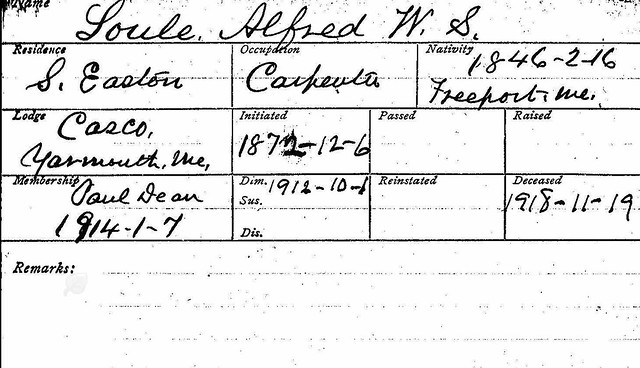The Importance of an Indoor Pool Dehumidifier
Evaporation is a problem that can cause serious damage to pool rooms and their contents. Even the best material selection, air distribution design and careful duct placement aren’t enough to prevent it.
A dehumidifier can help control humidity and keep the space healthy. It uses existing climate air to cool and dehumidify the room and captures heat energy that reduces heating costs.
Cost
The cost of a dehumidifier for an indoor pool will vary depending on the type and size of the system. It can range from $500 to $20,000. Other costs include filters and a pool water pump.
An effective and affordable option for reducing humidity levels in indoor swimming pools is an air dehumidification system. This will help prevent damage, improve comfort and reduce maintenance costs. It will also decrease the risk of corrosion on metal fixtures and exterior walls, as well as mustiness and mold growth.
Ventilation systems are commonly used to control humidity in pool rooms, but they are inefficient and expensive. They waste a significant amount of energy by constantly exhausting previously heated or cooled air to the outdoors. Additionally, they do not address moisture issues, such as the formation of mold and mildew in cold walls and ceilings.
An industrial dehumidifier will remove a great deal of moisture from the air in the pool room. It will also provide heat recovery for a low cost. This can be a good alternative to traditional pool heating methods, which require a lot of energy and often cause a lot of indoor pool dehumidifier condensation. This is a good option for hotel and hospitality properties that are looking for ways to reduce operating costs. It is also a good idea for residential and commercial buildings that are experiencing high humidity in their swimming pools or gyms.
Energy Efficiency
Regardless of the amount of care builders, mechanical engineers and architects put into material selection, fluid dynamic evaluations and careful duct placement, problems are bound to arise if the wrong type and size dehumidifier is selected. Having too much humidity in an indoor pool area creates a host of issues, including slippery surfaces, corrosion on metal components and mould. Mould spores also contaminate the air, triggering allergic reactions in guests and affecting their respiratory health.
The dehumidifier works by taking in climate air, cooling it below its moisture saturation point and then absorbing the latent energy of that water vapour by reversing the chemical process. It then reheats the air and returns it to the pool room at a lower humidity level. This eliminates the need to draw in fresh, outdoor air, which requires additional heating or cooling and wasting energy.
A DCA system also saves on electricity costs. Using the energy recovered from the condensation process, it can heat the pool room for free, while its cooling capability can also help to reduce electricity bills in summer. An optional ducted heater can be installed to provide supplemental room heating in winter.
All of these benefits come in addition to those associated with reducing the risk of corrosion, condensation and mildew growth and improving overall air quality, particularly around cold areas where moisture more readily condenses. This helps to protect the building’s structure and prevent the development of mould and foul odours that irritate staff and visitors.
Noise Level
While many people love swimming, visiting a pool center, and spending time with their family at the local indoor pool, they often complain about the damp chlorine smell. Often, this is due to high humidity levels in the room. High humidity levels can encourage the growth of mold, and they can also corrode the room fabric. It is important to have a dehumidifier installed in the pool room to keep humidity levels low.
The best dehumidifier for a pool room will be quiet, and it should be easy to maintain. It should be able to remove water from the air, and it should have a drain hose to collect the collected water. In addition, the dehumidifier should be compatible with other pool equipment, including water heaters and ventilation systems.
In addition to reducing humidity levels, a pool dehumidifier should be capable of providing fresh, oxygenated air, which will improve the health of natatorium occupants and reduce CO2 and odours. A dehumidifier should also be equipped with a heat recovery system that can recover energy from the heated air and transfer it to the colder outdoor air, which will further improve the occupants’ comfort level.
A dehumidifier with a built-in water heating feature is especially useful for a natatorium, as it will save hundreds of dollars annually on utility bills and provide better indoor air quality. Moreover, the dehumidifier will help to prevent condensation, and indoor pool dehumidifier it will ensure that no water leaks out of the unit.
Warranty
Dehumidifiers help prevent destructive moisture that can cause leakage, corrosion and mold. They also help maintain a comfortable pool room environment. Dehumidification systems are an essential part of natatoriums, water parks and aquatic facilities and can be used in commercial and residential applications. They are designed to be functional, energy efficient and to have the smallest eco-footprint.
These dehumidifiers are built with heavy-duty construction and use treated internal components to withstand the harsh environment they operate in. They are a perfect solution for swimming pools and can be installed in any indoor pool area. They work to reduce the amount of water that evaporates from the pool by removing the moisture through a drain hose. It is important to select a system that is sized correctly for the space you are installing it in. Otherwise, the system will not run efficiently and can result in over heating of the air and a reduction in pool water temperature.
It is important to regularly check the drain line to make sure that there are no kinks or obstructions. It is also a good idea to keep the surrounding area around the dehumidifier clean, as this will facilitate easier maintenance.
DCA’s multi-functional natatorium dehumidifiers have been developed to provide the optimum environment control solution at competitive market pricing. This is achieved by utilising the latest fluid cooled mechanical refrigeration technology. This new design offers greater energy savings, simpler installation requirements and significantly less refrigerant than traditional air-cooled refrigeration.



